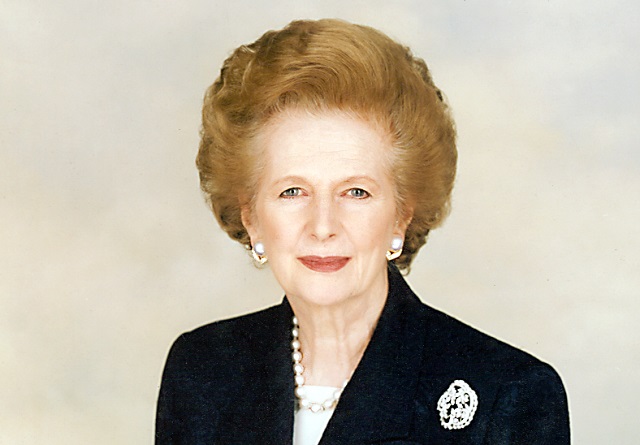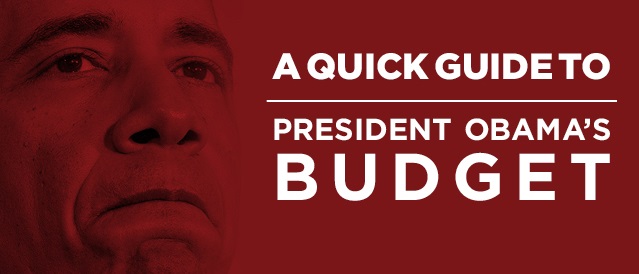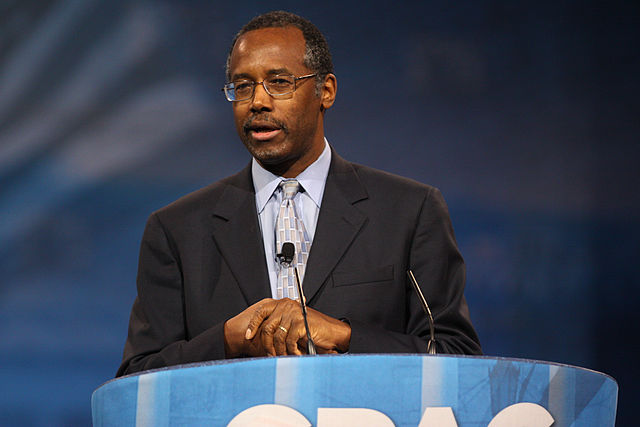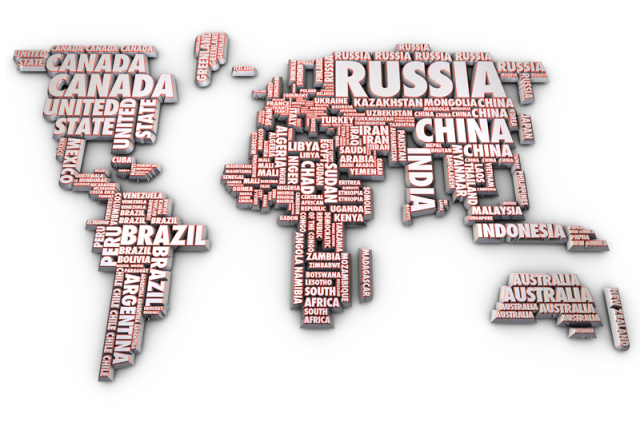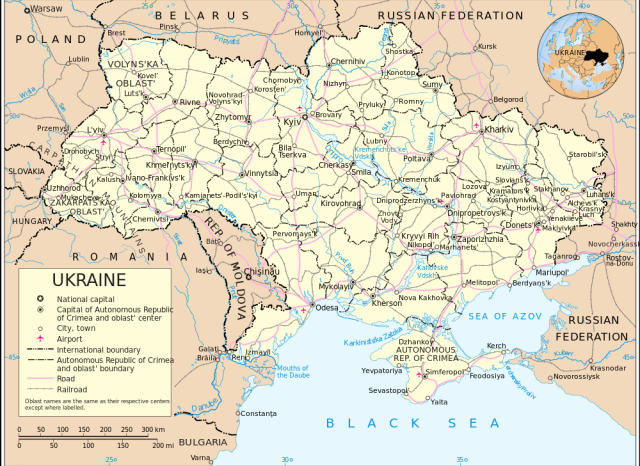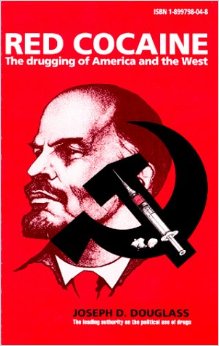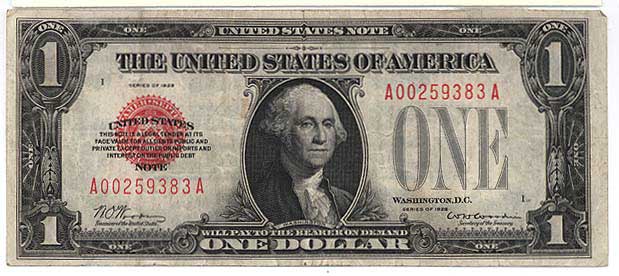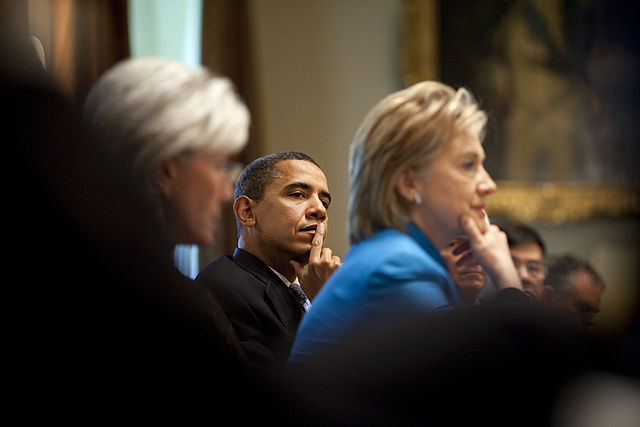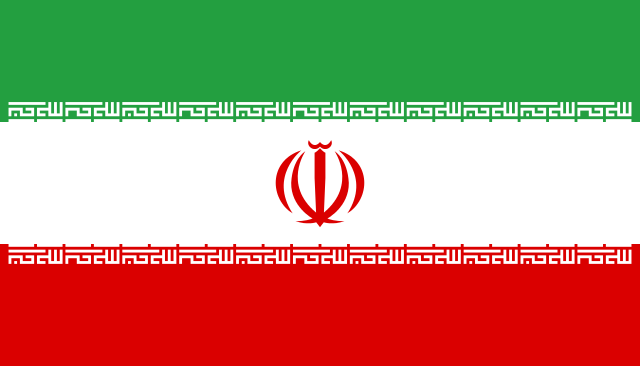Baroness Margaret Thatcher on the Moral Foundation of Democracy
Margaret Thatcher was born in 1925 and went on to earn a degree in chemistry from Somerville College, Oxford, as well as a master of arts degree from the University of Oxford. For some years she worked as a research chemist and then as a barrister, specializing in tax law. Elected to the House of Commons in 1953, she later held several ministerial appointments. She was elected leader of the Conservative Party and thus leader of the Opposition in 1975.
She became Britain’s first female prime minister in 1979 and served her nation in this historic role until her resignation in 1990. In 1992, she was elevated to the House of Lords to become Baroness Thatcher of Kesteven. The first volume of her memoirs, The Downing Street Years, was published in 1993 by HarperCollins.
[youtube]http://youtu.be/bb1sgMoYb70[/youtube]
EDITORS NOTE: The following transcript is from the concluding lecture given on November 1994 by Lady Thatcher delivered at the Hillsdale Center for Constructive Alternatives seminar, “God and Man: Perspectives on Christianity in the 20th Century” before an audience of 2,500 students, faculty, and guests. In an edited version of that lecture, she examines how the Judeo-Christian tradition has provided the moral foundations of America and other nations in the West and contrasts their experience with that of the former Soviet Union.
The Moral Foundations of the American Founding
History has taught us that freedom cannot long survive unless it is based on moral foundations. The American founding bears ample witness to this fact. America has become the most powerful nation in history, yet she uses her power not for territorial expansion but to perpetuate freedom and justice throughout the world.
For over two centuries, Americans have held fast to their belief in freedom for all men—a belief that springs from their spiritual heritage. John Adams, second president of the United States, wrote in 1789, “Our Constitution was designed only for a moral and religious people. It is wholly inadequate for the government of any other.” That was an astonishing thing to say, but it was true.
What kind of people built America and thus prompted Adams to make such a statement? Sadly, too many people, especially young people, have a hard time answering that question. They know little of their own history (This is also true in Great Britain.) But America’s is a very distinguished history, nonetheless, and it has important lessons to teach us regarding the necessity of moral foundations.
John Winthrop, who led the Great Migration to America in the early 17th century and who helped found the Massachusetts Bay Colony, declared, “We shall be as a City upon a Hill.” On the voyage to the New World, he told the members of his company that they must rise to their responsibilities and learn to live as God intended men should live: in charity, love, and cooperation with one another. Most of the early founders affirmed the colonists were infused with the same spirit, and they tried to live in accord with a Biblical ethic. They felt they weren’t able to do so in Great Britain or elsewhere in Europe. Some of them were Protestant, and some were Catholic; it didn’t matter. What mattered was that they did not feel they had the liberty to worship freely and, therefore, to live freely, at home. With enormous courage, the first American colonists set out on a perilous journey to an unknown land—without government subsidies and not in order to amass fortunes but to fulfill their faith.
Christianity is based on the belief in a single God as evolved from Judaism. Most important of all, the faith of America’s founders affirmed the sanctity of each individual. Every human life—man or woman, child or adult, commoner or aristocrat, rich or poor—was equal in the eyes of the Lord. It also affirmed the responsibility of each individual.
This was not a faith that allowed people to do whatever they wished, regardless of the consequences. The Ten Commandments, the injunction of Moses (“Look after your neighbor as yourself”), the Sermon on the Mount, and the Golden Rule made Americans feel precious—and also accountable—for the way in which they used their God-given talents. Thus they shared a deep sense of obligation to one another. And, as the years passed, they not only formed strong communities but devised laws that would protect individual freedom—laws that would eventually be enshrined in the Declaration of Independence and the U.S. Constitution.
Freedom with Responsibility
Great Britain, which shares much of her history in common with America, has also derived strength from its moral foundations, especially since the 18th century when freedom gradually began to spread throughout her socie!y Many people were greatly influenced by the sermons of John Wesley (1703-1791), who took the Biblical ethic to the people in a way which the institutional church itself had not done previously.
But we in the West must also recognize our debt to other cultures. In the pre-Christian era, for example, the ancient philosophers like Plato and Aristotle had much to contribute to our understanding of such concepts as truth, goodness, and virtue. They knew full well that responsibility was the price of freedom. Yet it is doubtful whether truth, goodness, and virtue founded on reason alone would have endured in the same way as they did in the West, where they were based upon a Biblical ethic.
Sir Edward Gibbon (1737-1794), author of The Decline and Fall of the Roman Empire, wrote tellingly of the collapse of Athens, which was the birthplace of democracy. He judged that, in the end, more than they wanted freedom, the Athenians wanted security. Yet they lost everything—security, comfort, and freedom. This was because they wanted not to give to society, but for society to give to them. The freedom they were seeking was freedom from responsibility. It is no wonder, then, that they ceased to be free. In the modern world, we should recall the Athenians’ dire fate whenever we confront demands for increased state paternalism.
To cite a more recent lesson in the importance of moral foundations, we should listen to Czech President Vaclav Havel, who suffered grievously for speaking up for freedom when his nation was still under the thumb of communism. He has observed, “In everyone there is some longing for humanity’s rightful dignity, for moral integrity, and for a sense that transcends the world of existence.” His words suggest that in spite of all the dread terrors of communism, it could not crush the religious fervor of the peoples of Eastern Europe and the Soviet Union.
So long as freedom, that is, freedom with responsibility, is grounded in morality and religion, it will last far longer than the kind that is grounded only in abstract, philosophical notions. Of course, many foes of morality and religion have attempted to argue that new scientific discoveries make belief in God obsolete, but what they actually demonstrate is the remarkable and unique nature of man and the universe. It is hard not to believe that these gifts were given by a divine Creator, who alone can unlock the secrets of existence.
Societies Without Moral Foundations
The most important problems we have to tackle today are problems, ultimately, having to do with the moral foundations of society There are people who eagerly accept their own freedom but do not respect the freedom of others—they, like the Athenians, want freedom from responsibility. But if they accept freedom for themselves, they must respect the freedom of others. If they expect to go about their business unhindered and to be protected from violence, they must not hinder the business of or do violence to others.
They would do well to look at what has happened in societies without moral foundations. Accepting no laws but the laws of force, these societies have been ruled by totalitarian ideologies like Nazism, fascism, and communism, which do not spring from the general populace, but are imposed on it by intellectual elites.
It was two members of such an elite, Marx and Lenin, who conceived of “dialectical materialism,” the basic doctrine of communism. It robs people of all freedom—from freedom of worship to freedom of ownership. Marx and Lenin desired to substitute their will not only for all individual will but for God’s will. They wanted to plan everything; in short, they wanted to become gods. Theirs was a breathtakingly arrogant creed, and it denied above all else the sanctity of human life.
The 19th century French economist and philosopher Frederic Bastiat once warned against this creed. He questioned those who, “though they are made of the same human clay as the rest of us, think they can take away all our freedoms and exercise them on our behalf.” He would have been appalled but not surprised that the communists of the 20th century took away the freedom of millions of individuals, starting with the freedom to worship. The communists viewed religion as “the opiate of the people.” They seized Bibles as well as all other private property at gun point and murdered at least 10 million souls in the process.
Thus 20th century Russia entered into the greatest experiment in government and atheism the world had ever seen, just as America several centuries earlier had entered into the world’s greatest experiment in freedom and faith.
Communism denied all that the Judeo-Christian tradition taught about individual worth, human dignity, and moral responsibility. It was not surprising that it collapsed after a relatively brief existence. It could not survive more than a few generations because it denied human nature, which is fundamentally moral and spiritual. (It is true that no one predicted the collapse would come so quickly and so easily. In retrospect, we know that this was due in large measure to the firmness of President Ronald Reagan who said, in effect, to Soviet leader Mikhail Gorbachev, “Do not try to beat us militarily, and do not think that you can extend your creed to the rest of the world by force.”)
The West began to fight the mora! battle against communism in earnest in the 1980s, and it was our resolve—combined with the spiritual strength of the people suffering under the system who finally said, “Enough!”—that helped restore freedom in Eastern Europe and the Soviet Union—the freedom to worship, speak, associate, vote, establish political parties, start businesses, own property, and much more. If communism had been a creed with moral foundations, it might have survived, but it was not, and it simply could not sustain itself in a world that had such shining examples of freedom, namely, America and Great Britain.
The Moral Foundations of Capitalism
It is important to understand that the moral foundations of a society do not extend only to its political system; they must extend to its economic system as well. America’s commitment to capitalism is unquestionably the best example of this principle. Capitalism is not, contrary to what those on the Left have tried to argue, an amoral system based on selfishness, greed, and exploitation. It is a moral system based on a Biblical ethic. There is no other comparable system that has raised the standard of living of millions of people, created vast new wealth and resources, or inspired so many beneficial innovations and technologies.
The wonderful thing about capitalism is that it does not discriminate against the poor, as has been so often charged; indeed, it is the only economic system that raises the poor out of poverty. Capitalism also allows nations that are not rich in natural resources to prosper. If resources were the key to wealth, the richest country in the world would be Russia, because it has abundant supplies of everything from oil, gas, platinum, gold, silver, aluminum, and copper to timber, water, wildlife, and fertile soil.
Why isn’t Russia the wealthiest country in the world? Why aren’t other resource-rich countries in the Third World at the top of the list? It is because their governments deny citizens the liberty to use their God-given talents. Man’s greatest resource is himself, but he must be free to use that resource.
In his recent encyclical, Centesimus Annus, Pope John Paul I1 addressed this issue. He wrote that the collapse of communism is not merely to be considered as a “technical problem.” It is a consequence of the violation of human rights. He specifically referred to such human rights as the right to private initiative, to own property, and to act in the marketplace. Remember the “Parable of the Talents” in the New Testament? Christ exhorts us to be the best we can be by developing our skills and abilities, by succeeding in all our tasks and endeavors. What better description can there be of capitalism? In creating new products, new services, and new jobs, we create a vibrant community of work. And that community of work serves as the basis of peace and good will among all men.
The Pope also acknowledged that capitalism encourages important virtues, like diligence, industriousness, prudence, reliability, fidelity, conscientiousness, and a tendency to save in order to invest in the future. It is not material goods but all of these great virtues, exhibited by individuals working together, that constitute what we call the “marketplace.”
The Moral Foundations of the Law
Freedom, whether it is the freedom of the marketplace or any other kind, must exist within the framework of law. 0thenvise it means only freedom for the strong to oppress the weak. Whenever I visit the former Soviet Union, I stress this point with students, scholars, politicians, and businessmen—in short, with everyone I meet. Over and over again, I repeat: Freedom must be informed by the principle of justice in order to make it work between people. A system of laws based on solid moral foundations must regulate the entire life of a nation.
But this is an extremely difficult point to get across to people with little or no experience with laws except those based on force. The concept of justice is entirely foreign to communism. So, too, is the concept of equality. For over seventy years, Eastern Europe and the Soviet Union had no system of common law. There were only the arbitrary and often contradictory dictates of the Communist Party. There was no independent judiciary There was no such thing as truth in the communist system.
And what is freedom without truth? I have been a scientist, a lawyer, and a politician, and from my own experience I can testify that it is nothing. The third century Roman jurist Julius Paulus said, “What is right is not derived from the rule, but the rule arises from our knowledge of what is right.” In other words, the law is founded on what we believe to be true and just. It has moral foundations. Once again, it is important to note that the free societies of America and Great Britain derive such foundations from a Biblical ethic.
The Moral Foundations of Democracy
Democracy is never mentioned in the Bible. When people are gathered together, whether as families, communities or nations, their purpose is not to ascertain the will of the majority, but the will of the Holy Spirit. Nevertheless, I am an enthusiast of democracy because it is about more than the will of the majority. If it were only about the will of the majority, it would be the right of the majority to oppress the minority. The American Declaration of Independence and Constitution make it clear that this is not the case. There are certain rights which are human rights and which no government can displace. And when it comes to how you Americans exercise your rights under democracy, your hearts seem to be touched by something greater than yourselves. Your role in democracy does not end when you cast your vote in an election. It applies daily; the standards and values that are the moral foundations of society are also the foundations of your lives.
Democracy is essential to preserving freedom. As Lord Acton reminded us, “Power tends to corrupt, and absolute power corrupts absolutely.” If no individual can be trusted with power indefinitely, it is even more true that no government can be. It has to be checked, and the best way of doing so is through the will of the majority, bearing in mind that this will can never be a substitute for individual human rights.
I am often asked whether I think there will be a single international democracy, known as a “new world order.” Though many of us may yearn for one, I do not believe it will ever arrive. We are misleading ourselves about human nature when we say, “Surely we’re too civilized, too reasonable, ever to go to war again,” or, “We can rely on our governments to get together and reconcile our differences.” Tyrants are not moved by idealism. They are moved by naked ambition. Idealism did not stop Hitler; it did not stop Stalin. Our best hope as sovereign nations is to maintain strong defenses. Indeed, that has been one of the most important moral as well as geopolitical lessons of the 20th century. Dictators are encouraged by weakness; they are stopped by strength. By strength, of course, I do not merely mean military might but the resolve to use that might against evil.
The West did show sufficient resolve against Iraq during the Persian Gulf War. But we failed bitterly in Bosnia. In this case, instead of showing resolve, we preferred “diplomacy” and “consensus.” As a result, a quarter of a million people were massacred. This was a horror that I, for one, never expected to see again in my lifetime. But it happened. Who knows what tragedies the future holds if we do not learn from the repeated lessons of histoy? The price of freedom is still, and always will be, eternal vigilance.
Free societies demand more care and devotion than any others. They are, moreover, the only societies with moral foundations, and those foundations are evident in their political, economic, legal, cultural, and, most importantly, spiritual life.
We who are living in the West today are fortunate. Freedom has been bequeathed to us. We have not had to carve it out of nothing; we have not had to pay for it with our lives. Others before us have done so. But it would be a grave mistake to think that freedom requires nothing of us. Each of us has to earn freedom anew in order to possess it. We do so not just for our own sake, but for the sake of our children, so that they may build a better future that will sustain over the wider world the responsibilities and blessings of freedom.
EDITORS NOTE: The featured image of a portrait of Baroness Margaret Thatcher is courtesy of the Margaret Thatcher Foundation.

